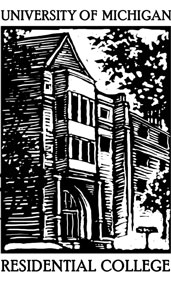On Sunday we left St. Petersburg for Vytegra. I felt some regret when we left St. Petersburg, though all the good memories we had in the last 48 ours kept me occupied for most of the 12 hour trip to Vytegra. On the way, we stopped stopped at the Svirsky Monastery, the holiest site in Russia. I was extremely excited to see the monastery, being an Orthodox Christian.
As a Reader in the Orthodox Church, I was very extremely interested in everything that our tour guide told us. The monastery is sited on the only location outside of the Holy Land where the Trinity manifested itself to a human being (in the form of three angels). The waters at the well that St. Alexander dug are said to have special healing powers, and the sand above his grave likewise. St. Alexander is also known for blessing infertile couples, especially with sons. As part of our tour, we visited the unheated summer church, where the monastic choir chanted for us. The acoustics of the church and professionalism of the singers made the experience unearthly beautiful. We did not know if we were in heaven or on earth. I spoke with the monk on guard at St. Alexander's tomb. He gave me all sorts of information on monastic life in Russia, on the religious revival that has been ongoing since the fall of the Soviet Union, and of the miracles of St. Alexander. When we went to the grave to venerate St. Alexander, he even opened the glass case containing the incorrupt body (the body remains very well preserved, despite St. Alexander dying 478 years ago) to venerate the body. After our discussion, he even presented me with a chotki (prayer beads like a rosary) that he had received from a person who had been to the Holy Land! Sergei, one of the Ruslan leaders, and I were shocked, and very grateful for the monk's generosity.
The monastery appeared to be well kept, with the 30 monks living only on donations. The monks had a beautifully restored monastery, having been destroyed under the Soviet Union , and our tour guide told us how the soviet era mental hospital housed in the monk's dormitories had only been closed down last year. Despite its recent past, the monastery was very quiet and had a meditative atmosphere. Inside the complex I felt at peace, living only in the present, in a state of timelessness. This sense of timelessness has been an ongoing theme that the preparatory class that we had to take for the trip repeatedly emphasized. I could feel this in the Svirsky monastery.
I was very impressed by the size and the recovery of the monastery. With its near physical destruction under the Soviet Union, it is very impressive to see how beautiful the summer church was and how new the active winter church is. It was also noticeable that many of the monks were very young, one looked in his mid-twenties. The only old monk was the one whom I spoke, and he said that he had only been in the monastery for 8 years. It was an interesting contrast-the ancient buildings, location, and St. Alexander versus the newly refurnished church interiors, closed mental hospital, and the young and newly entered monks. This contrast I think speaks greatly of how modern Russia operates, as both an old, traditional nation and a new emerging post-communist society. In the monks' own words, “Russia is a strange country”.


I always love to hear these stories of restored monastery's from the CCCP Era. The devotion of those monks is incredible.
ReplyDeleteTruly inspiring, treasure that Chotki.
Regards,
Maximilian @ Chotki